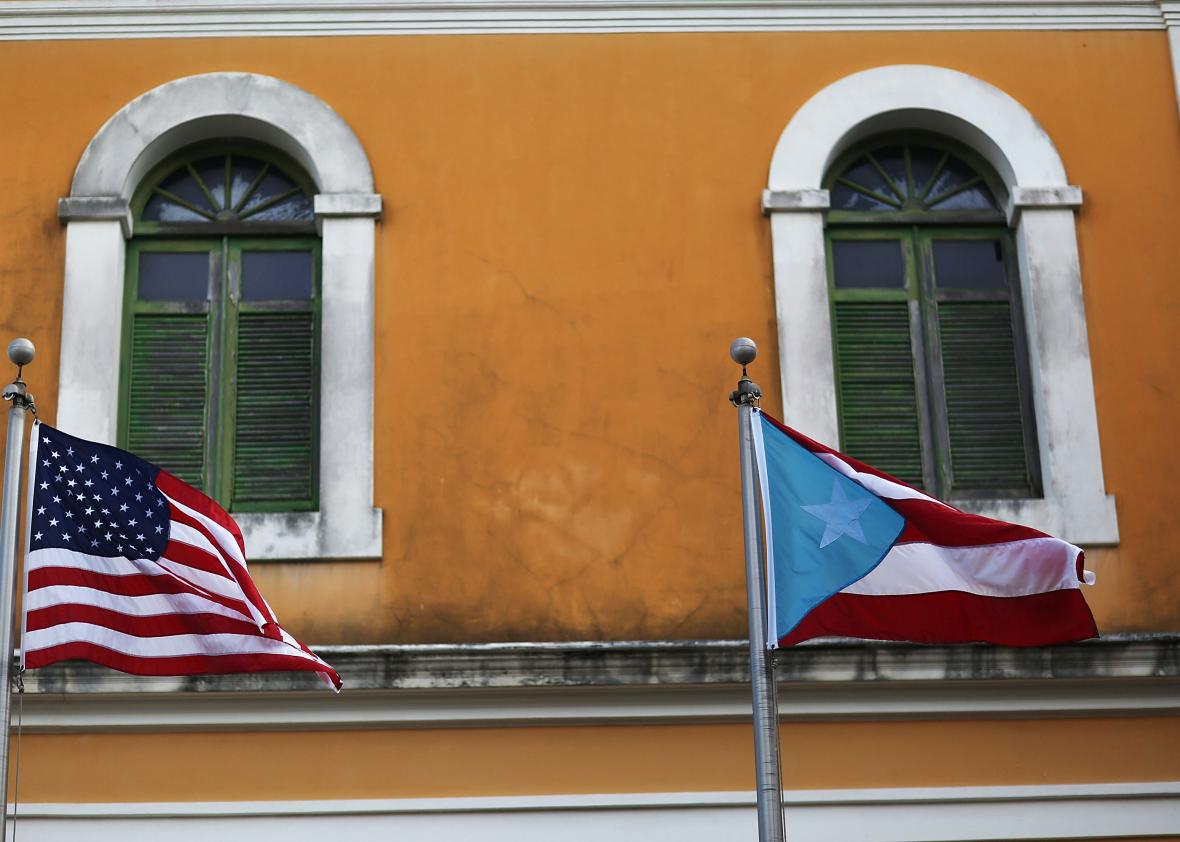A few days before Puerto Rico defaulted on a smallish portion of its debt this weekend, a group of hedge funds holding its bonds issued a report arguing that the island could pay back its obligations in full by simply slashing spending and increasing tax collections. That wasn’t hard to ridicule, especially given the havoc that austerity programs have unleashed of late in, for instance, Greece. But there was one particular recommendation that seemed ripe to be pilloried.
“Hedge funds tell Puerto Rico: lay off teachers and close schools to pay us back,” the Guardian blared.
“Why U.S. Hedge Funds are attacking struggling Puerto Rican schools,” Global Post offered to explain.
“Hedge Fund Economists Want Puerto Rico to Lay Off Teachers to Fix Debt Crisis,” Time informed its readers.
These headlines were perfectly accurate. The hedge fund report, authored by a trio of former International Monetary Fund economists, noted that Puerto Rico’s education spending had risen 39 percent in a decade during which school enrollment actually fell by a quarter. Surely, there must have been some unnecessary fat in the system to cut. “The real expense per student has increased enormously without increasing the quality of education,” Jose Fajgenbaum, one of the document’s authors, told the Guardian. “It’s for the government to decide [how much to cut spending by], but you don’t want to waste government resources. There has to be efficiencies. It is more important to establish a position for growth.”
It’s easy to understand why this might seem outrageous. Firing teachers in the middle of what’s essentially a nine-year depression seems like a good way to further exacerbate Puerto Rican unemployment, possibly while sacrificing some childrens’ educations. Luis Gallardo, a Puerto Rican legislator, noted that the territory’s government had already shut down 100 schools this year and “reconfigured” another 500. “They are proposing teacher layoffs, cuts in higher education, and health benefits, as well as increased taxes. These proposals have been a disaster for Latin America and would be so for Puerto Rico. Sure, Puerto Rico could pay its debt, but at what cost? We are literally cutting off our own limbs just to stay afloat,” Gallardo said, figuratively.
Here is a detail that got much less attention. In June, a group of economists commissioned by Puerto Rico’s governor, including former chief World Bank economist and IMF official Anne Krueger, released its own report arguing that the government’s debt load would be unsustainable without some significant relief (or “restructuring”). At the same time, the authors concluded, the island also needed to pass serious economic reforms, including spending cuts and tax hikes, to help balance its future budgets and set the stage for growth. One of their suggestions? Cut teachers.
“Puerto Rico currently has 40% fewer students but 10% more teachers than a decade ago,” the report states. “Teacher-student ratios are high, higher than in the mainland and many of its wealthiest and best-performing counties. A gradual cut in the number of teachers saves $400 million per year by FY2020 – more if sparsely attended schools are also consolidated.”
Why point this out? Because it illustrates what the conflict between Puerto Rico and its creditors will actually look like. The question isn’t whether the territory will have to deal with painful cuts. The question is whether its creditors are willing to respond to a good-faith attempt to rein in deficits by giving the island a break on its loans in order to make them payable. Notably, when the governor’s chief of staff was asked about the education cuts, he responded: “The simple fact remains that extreme austerity [alone] is not a viable solution for an economy already on its knees.” The fact that he didn’t reject the idea entirely, only the idea of austerity alone, speaks volumes. Asking Puerto Rico to shutter some schools might not be off base. Asking it to do so for nothing in return, though, is an idea worth ridiculing.
